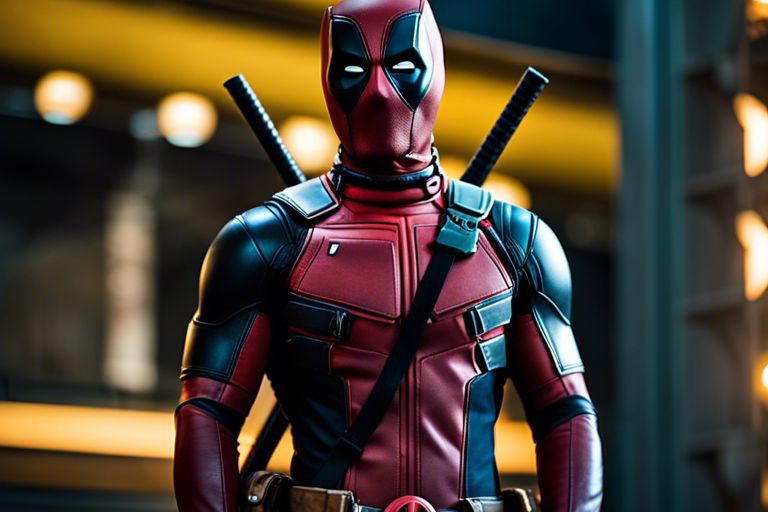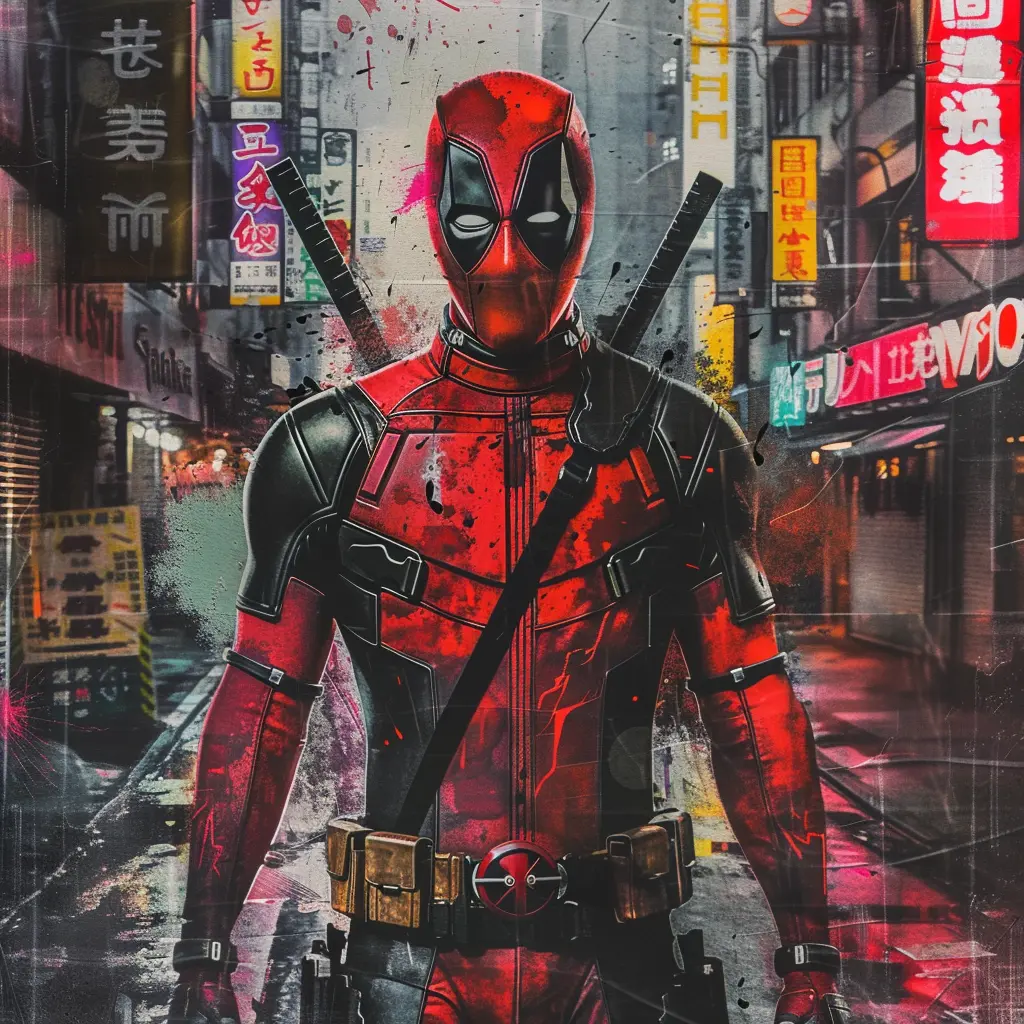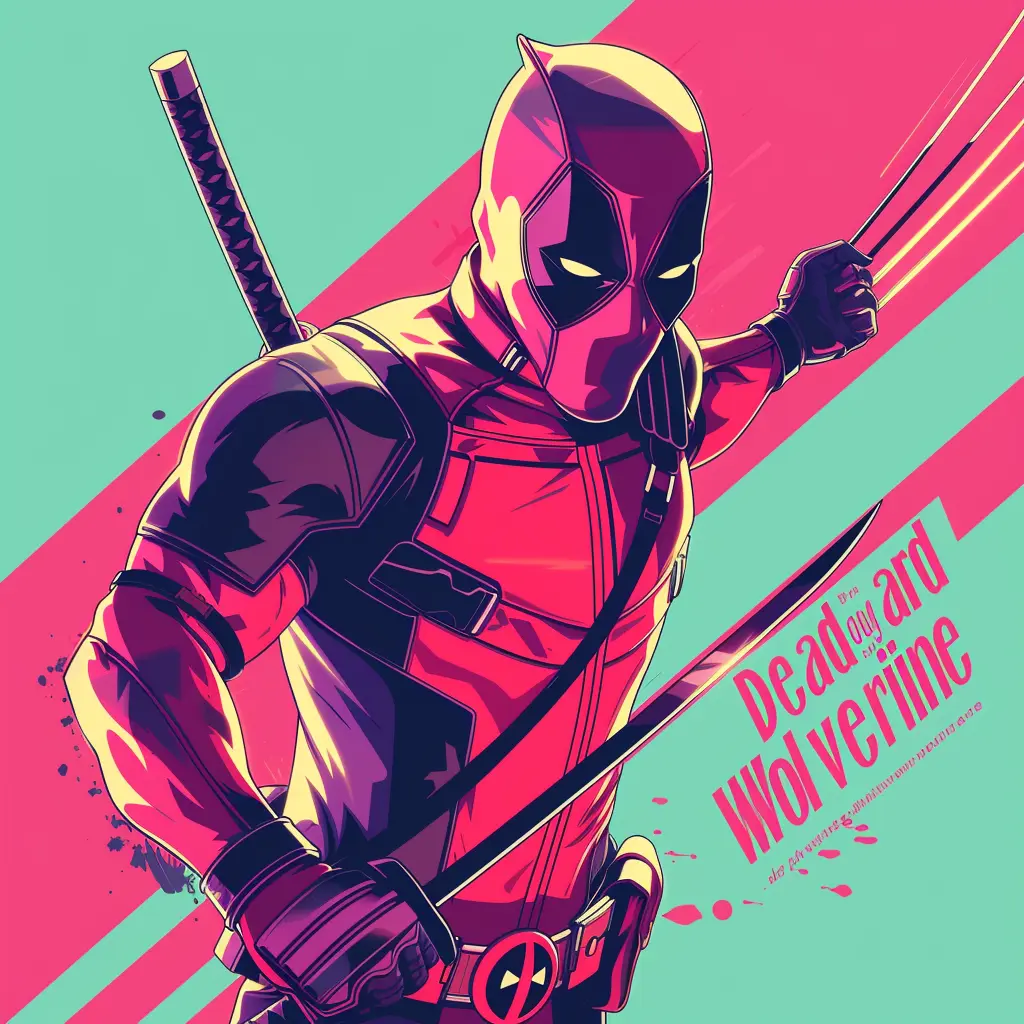
Deadpool, also known as Wade Wilson, is a character that often blurs the lines between hero and villain. The perception of Deadpool as either a superhero or a villain depends on one’s perspective. In the first two movies, Deadpool predominantly takes on the role of a villain, though with a unique twist – he is often considered an anti-hero. This article delves into the multifaceted nature of Deadpool, exploring the reasons behind his ambiguous character, his unique powers, and his distinct approach to heroism.

Deadpool’s portrayal as an anti-hero is rooted in his unpredictability and reluctance to conform to traditional hero norms. Unlike conventional superheroes who follow a strict moral code, Deadpool’s actions are driven by a more chaotic and self-serving agenda. His tendency to create conflicts and engage in morally ambiguous activities sets him apart from the typical superhero archetype.
One aspect that contributes to Deadpool’s anti-hero persona is his possession of special powers. Following a scientific experiment, Wade Wilson undergoes a radical transformation, resulting in a completely altered body and face. These unique powers set him apart from ordinary individuals and even other superheroes, emphasizing his status as an unconventional force in the superhero realm.
Adding to the complexity of Deadpool’s character is the fact that he often hides behind a mask. Unlike other superheroes with identifiable alter egos, Deadpool’s true identity remains a mystery to the public. This element of secrecy fuels skepticism and mistrust, further solidifying his status as an anti-hero.
A defining trait of Deadpool is his sense of humor, injected into even the most serious situations. This comedic aspect serves as a coping mechanism for Wade Wilson, making light of grim circumstances. For instance, Deadpool’s visit to the X-Men house showcases his humor when he remarks on the size of the place and jokes about the cliché of carrying multiple knives.

While Deadpool’s anti-heroic tendencies are prominent, there are instances where he veers into outright villainous territory. His unwillingness to walk away from conflicts and his propensity for creating chaos make him a formidable force, not bound by conventional notions of heroism.
Contrary to the randomness associated with chaos, Deadpool’s actions are meticulously planned. Every move he makes is calculated, with no room for chance. This strategic approach to chaos adds a layer of complexity to his character, showcasing that his actions, no matter how chaotic, are deliberate and purposeful.
The ambiguous nature of Deadpool’s identity contributes to the challenge of categorizing him as a hero. The concealment of his true self behind the mask creates a level of uncertainty in the public eye. Unlike other superheroes with transparent personas, Deadpool remains a mystery, making it difficult for people to identify him as a hero.
Despite his villainous antics, Deadpool’s unique brand of heroism emerges through unconventional means. His willingness to take on specific targets that others might shy away from sets him apart. Deadpool operates outside the traditional hero framework, creating a space for a different kind of heroism.
Deadpool’s journey from a villainous character to a more nuanced anti-hero reflects the evolution of his character in both comics and movies. As the narrative unfolds, Deadpool’s motives and actions become more nuanced, challenging traditional perceptions of heroism and villainy.
To truly understand Deadpool’s character, delving into his backstory is crucial. The transformation from Wade Wilson to Deadpool through a scientific experiment not only alters his physical appearance but also shapes his worldview. The trials and tribulations of Wade’s life contribute to the complexity of his character.
Deadpool’s introduction to the superhero genre brings a refreshing and unconventional perspective. His ability to navigate the moral gray areas and challenge the norms of heroism has resonated with audiences, contributing to the character’s enduring popularity.
The dichotomy of Deadpool’s persona, oscillating between villainy and anti-heroism, adds depth to his character. This duality keeps audiences intrigued, questioning the conventional notions of heroism and forcing a reevaluation of what it means to be a superhero.

In conclusion, Deadpool remains a fascinating and ever-evolving character within the superhero landscape. His ability to straddle the line between hero and villain, coupled with his unique powers and humorous disposition, makes him a standout figure. Deadpool challenges the norms of heroism, leaving audiences questioning and redefining the very essence of what it means to be a superhero.
As we navigate the complex tapestry of Deadpool’s character, one thing is certain – the journey is far from over. With each new iteration and storyline, Deadpool continues to shape the narrative of heroism, inviting audiences to ponder the blurred lines between good and bad, making the exploration of his character an ongoing adventure.
For more intriguing insights into Deadpool’s world and the broader superhero universe, stay tuned for our next exploration into the depths of iconic characters and their ever-evolving stories.
Back/Home